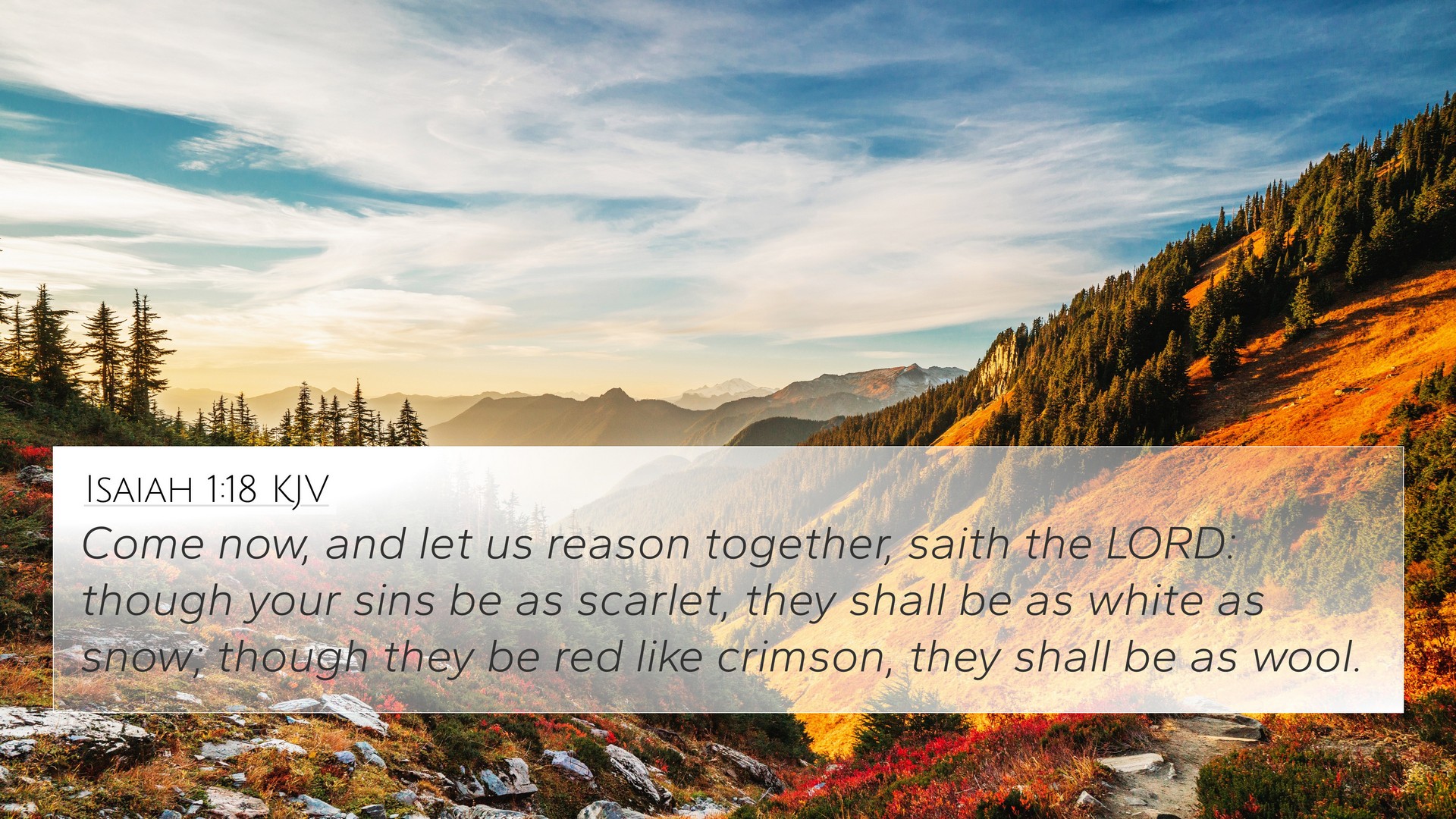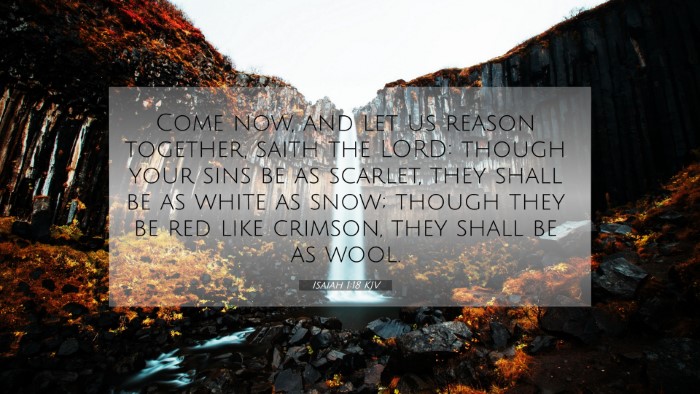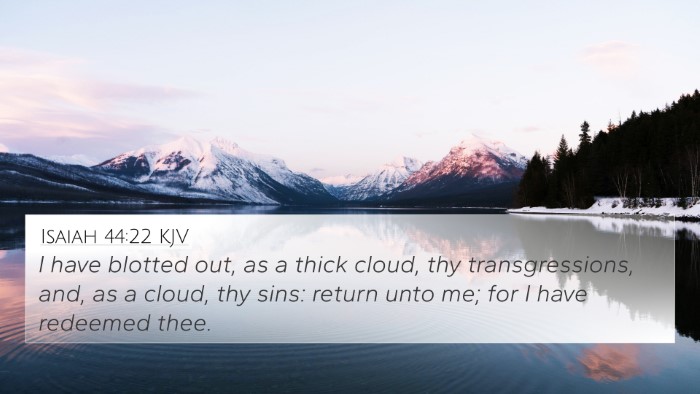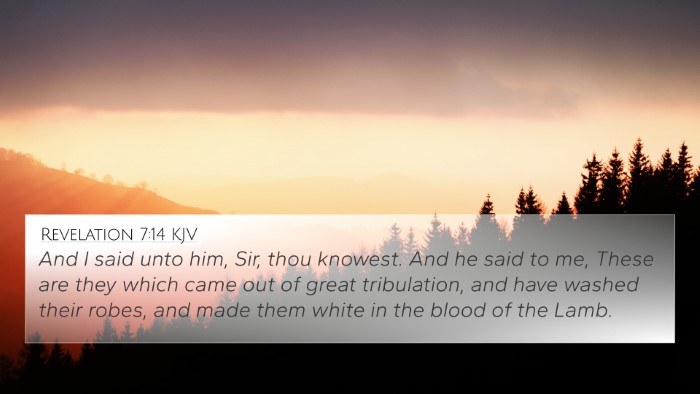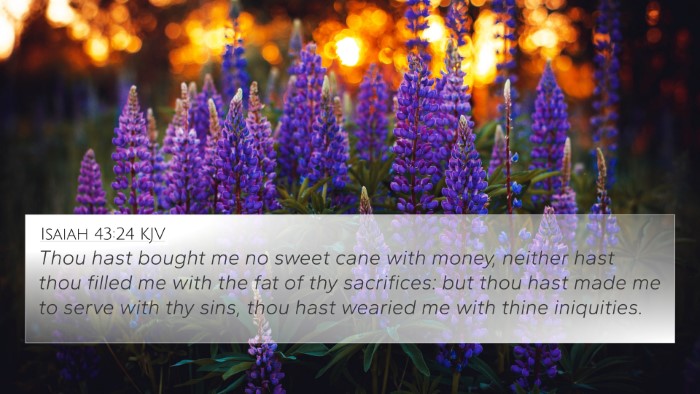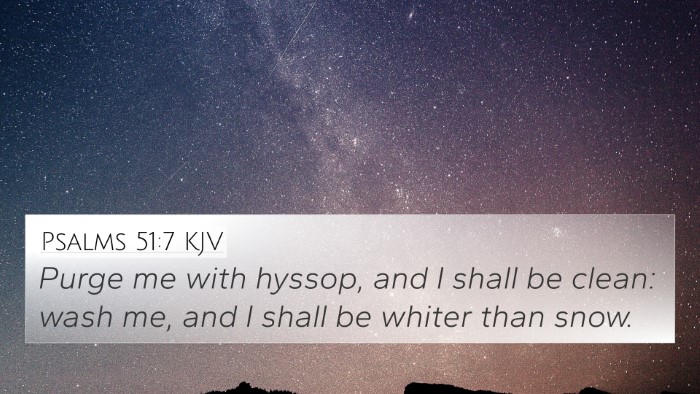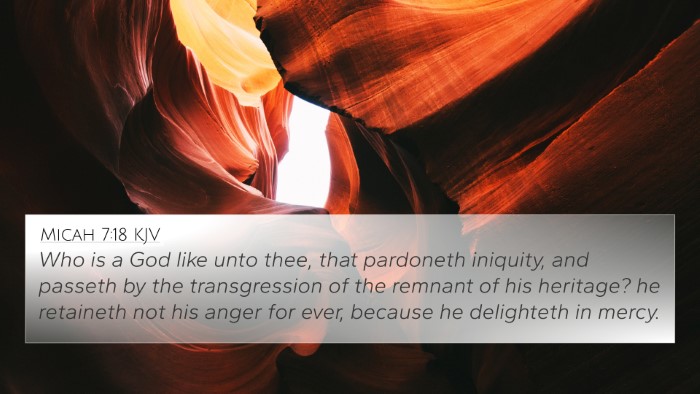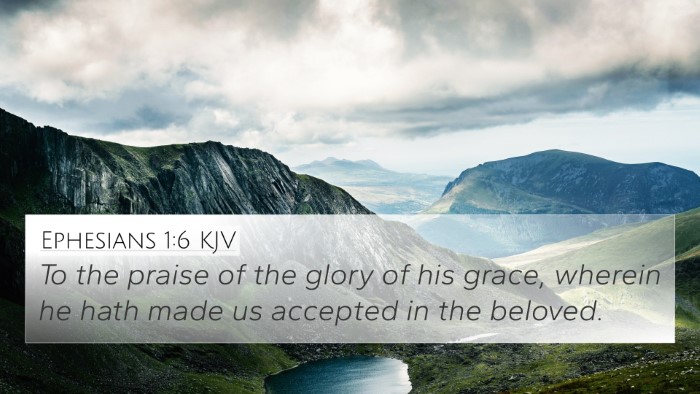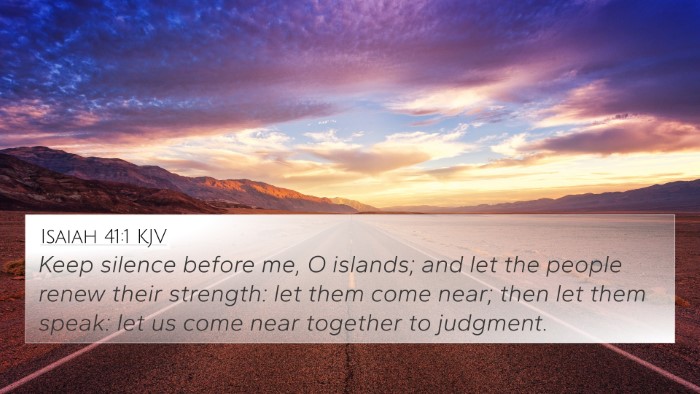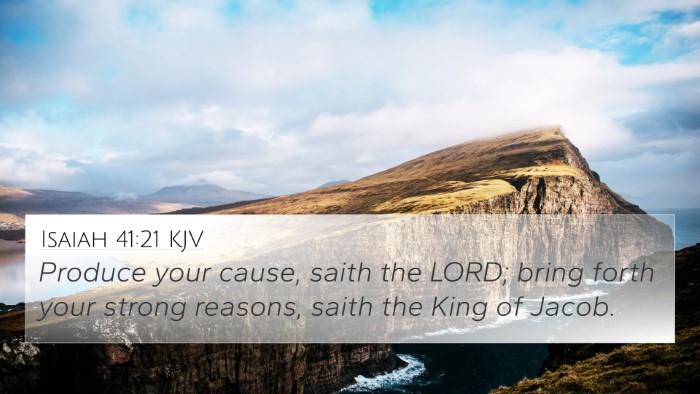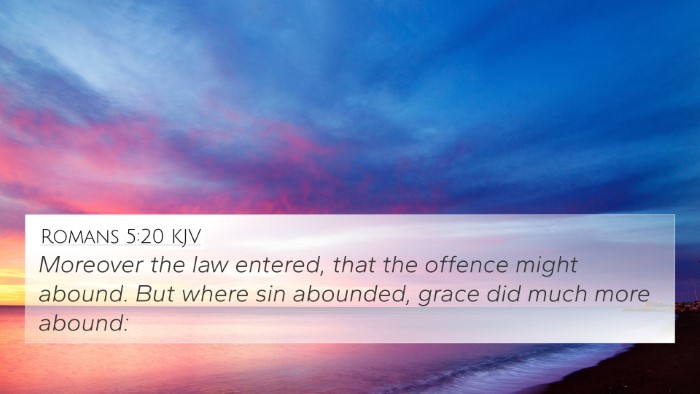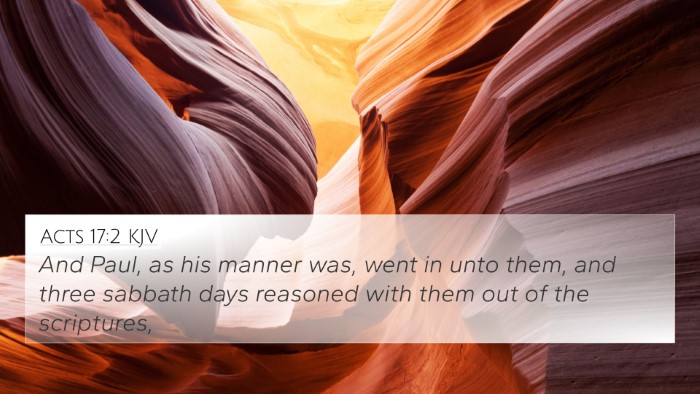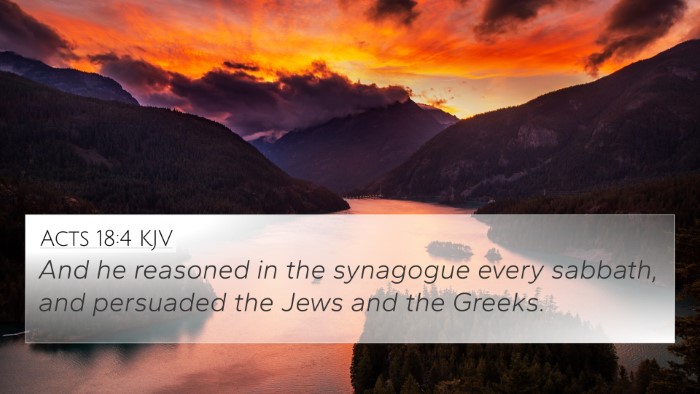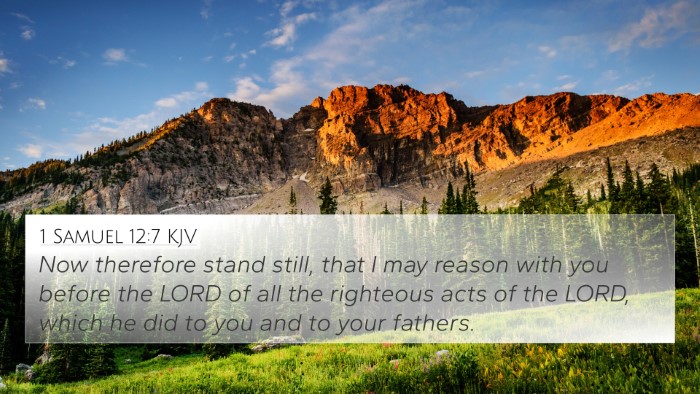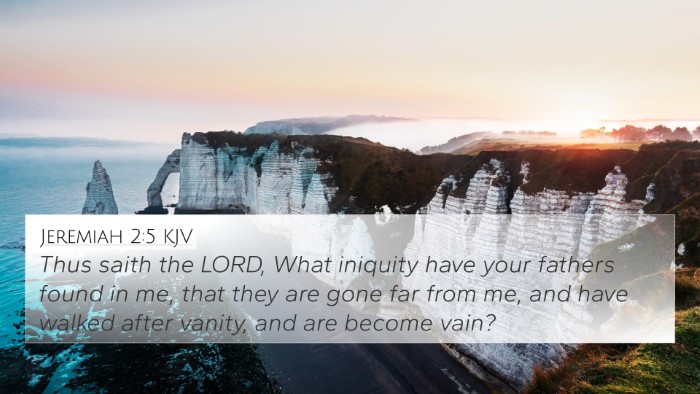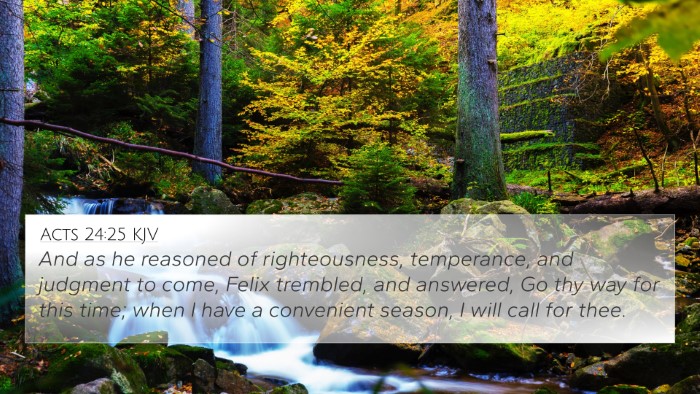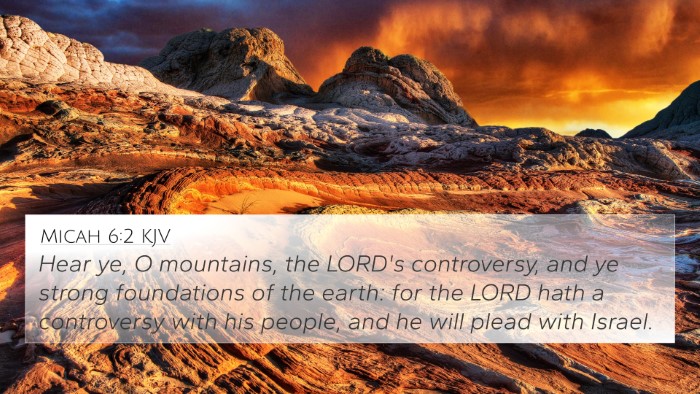Understanding Isaiah 1:18
Isaiah 1:18 presents a powerful invitation from God, offering hope and redemption despite the people's sins. It says:
"Come now, and let us reason together, saith the Lord: though your sins be as scarlet, they shall be as white as snow; though they be red like crimson, they shall be as wool."
Summary of Meaning
This verse encapsulates God's gracious offer of forgiveness and cleansing in the face of sin, urging individuals to engage in a dialogue with Him. It highlights the transformative power of repentance and God's willingness to restore purity.
Insights from Public Domain Commentaries
-
Matthew Henry:
Matthew Henry emphasizes that this verse invites sinners to a rational discourse with God about their condition. He notes that God does not merely demand obedience but offers an opportunity for repentance and dialogue. God desires to reason with His people, showing them that their sins, as pronounced as they may be, can be completely cleansed through His mercy.
-
Albert Barnes:
Albert Barnes reflects on the metaphor of scarlet and wool, explaining that these colors signify deep-rooted sin and the potential for complete cleansing. He points out that the Lord stresses His ability to transform the most sinful state into one of purity, symbolically comparing the washing away of sins to snow and wool's whiteness.
-
Adam Clarke:
Adam Clarke expands on the concept of reasoning with God, indicating this is not simply about verbal communication but rather involves understanding God's expectations. He suggests that this reasoning aims to illuminate the need for genuine repentance and faith in God's provision for redemption.
Bible Verse Cross-References
Several scriptures resonate with the message of Isaiah 1:18, expanding on themes of sin, redemption, and God's restorative power:
- Psalm 51:7: "Purge me with hyssop, and I shall be clean: wash me, and I shall be whiter than snow." - This verse emphasizes the need for spiritual cleansing and the promise of being made pure.
- John 3:16: "For God so loved the world, that he gave his only begotten Son..." - Illustrates God's love and the sacrificial means by which redemption is offered.
- 1 John 1:9: "If we confess our sins, he is faithful and just to forgive us our sins, and to cleanse us from all unrighteousness." - Reinforces the principle of confession and assurance of forgiveness.
- Romans 3:23-24: "For all have sinned, and come short of the glory of God; being justified freely by his grace through the redemption that is in Christ Jesus." - Speaks to the universality of sin and the grace available through Christ.
- Hebrews 10:22: "Let us draw near with a true heart in full assurance of faith, having our hearts sprinkled from an evil conscience and our bodies washed with pure water." - Encourages believers to approach God with confidence in His cleansing power.
- Isaiah 43:25: "I, even I, am he that blotteth out thy transgressions for mine own sake, and will not remember thy sins." - Highlights God's proactive forgiveness of our sins.
- Micah 7:18-19: "Who is a God like unto thee, that pardoneth iniquity, and passeth by the transgression of the remnant of his heritage?" - Acknowledges God's unique ability to extend mercy and remove transgression.
- Revelation 1:5: "...Unto him that loved us, and washed us from our sins in his own blood..." - Affirms the cleansing power of Christ’s sacrifice.
Connections Between Bible Verses
The connections drawn between these verses and Isaiah 1:18 highlight a thematic dialogue throughout Scripture regarding sin, redemption, and divine cleansing.
Cross-Referencing Biblical Texts
Utilizing tools for Bible cross-referencing can enhance understanding and provide deeper insights into the relationships between various scripture passages. Tools such as Bible concordances, cross-reference guides, and thematic studies allow one to explore:
- Thematic Bible verse connections related to sin and redemption.
- Similarities in the messages of different prophets and apostles.
Why Cross-References Matter
Engaging in a cross-referencing Bible study helps uncover the richness of God’s Word, allowing for:
- Identifying connections: Exploring links between the Old and New Testament for deeper theological understanding.
- Comparative studies: Analyzing similarities and differences across various books.
Conclusion
Isaiah 1:18 serves as an invitation to reflection and contemplation on the nature of sin and the depth of God's mercy. Through scriptural cross-referencing, believers can discover the depth of this invitation and explore the broader narrative of redemption found throughout the Bible.
